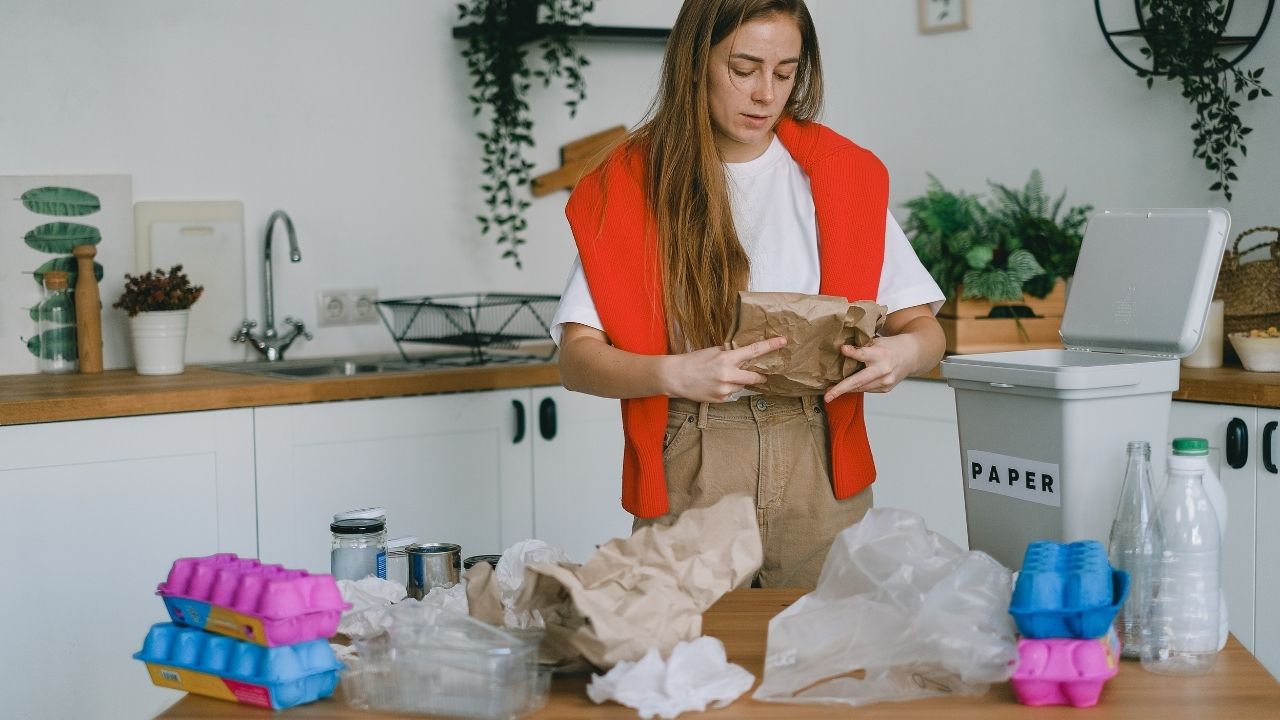
Introduction
Creating a zero-waste kitchen is a significant step towards living a more sustainable and eco-friendly lifestyle. By adopting simple practices and making conscious choices, we can reduce our environmental impact and contribute to a greener future. In this article, we will explore various strategies and tips to help you transform your kitchen into a zero-waste haven.
Conduct a Waste Audit
Before embarking on your zero-waste journey, it is essential to understand the types and amounts of waste your kitchen generates. Conduct a waste audit by monitoring your trash for a week. Take note of the items you frequently discard, such as food packaging, single-use plastics, and food scraps. This information will help you identify areas where you can make improvements and reduce waste.
Embrace Reusable and Durable Items
One of the most effective ways to create a zero-waste kitchen is by replacing single-use items with reusable and durable alternatives. Swap disposable paper towels for cloth napkins or unpaper towels. Invest in high-quality, long-lasting kitchen tools like stainless steel or bamboo utensils instead of plastic ones. Use glass or stainless steel containers for food storage, and opt for silicone or beeswax wraps instead of plastic wrap.
Shop Smart and Reduce Packaging
When grocery shopping, be mindful of the packaging that comes with your food. Choose loose produce whenever possible, and bring your own reusable produce bags to avoid plastic ones. Opt for bulk bins to purchase staples like grains, legumes, and nuts, and use your own containers to store them. When buying packaged items, look for those with minimal or recyclable packaging.
Compost Food Scraps
Food waste is a significant contributor to landfills, but composting offers a sustainable solution. Set up a composting system in your kitchen to divert food scraps from the waste stream. You can use a countertop compost bin or a larger outdoor compost tumbler. Compostable items include fruit and vegetable peels, coffee grounds, tea bags, and eggshells. The resulting compost can be used to enrich your garden soil, reducing the need for synthetic fertilizers.
Utilize Leftovers and Reduce Food Waste
Minimizing food waste is crucial in a zero-waste kitchen. Plan your meals in advance and create a grocery list to avoid overbuying. Store food properly to extend its shelf life, and use airtight containers to keep leftovers fresh. Get creative with leftovers by repurposing them into new meals, such as turning leftover vegetables into a hearty soup or using stale bread for croutons.
Choose Biodegradable and Compostable Products
When purchasing disposable items like trash bags or cleaning supplies, opt for biodegradable and compostable options. Look for products made from natural materials like bamboo, sugarcane, or cornstarch, which can break down in a compost pile without harming the environment. These eco-friendly alternatives help reduce the amount of non-biodegradable waste in landfills.
Educate and Involve Your Family
Creating a zero-waste kitchen is a team effort. Educate your family members about the importance of reducing waste and involve them in the process. Encourage everyone to adopt zero-waste practices, such as properly sorting recyclables, composting, and using reusable items. Make it a fun and rewarding experience by setting goals and celebrating achievements together.
Conclusion
Transitioning to a zero-waste kitchen is a gradual process that requires dedication and mindfulness. By implementing these strategies and making small changes in your daily routine, you can significantly reduce your kitchen's environmental impact. Remember, every effort counts, and your commitment to a sustainable and eco-friendly lifestyle can inspire others to follow suit. Embrace the journey towards a zero-waste kitchen and enjoy the satisfaction of contributing to a greener planet.
 Family Craft ProjectsHome ImprovementCooking and BakingReuse and RecycleDIY GiftsEco-Friendly ProjectsDIY Home SolutionsSeasonal ActivitiesFun and GamesLearn TogetherPrivacy PolicyTerms And Conditions
Family Craft ProjectsHome ImprovementCooking and BakingReuse and RecycleDIY GiftsEco-Friendly ProjectsDIY Home SolutionsSeasonal ActivitiesFun and GamesLearn TogetherPrivacy PolicyTerms And Conditions
